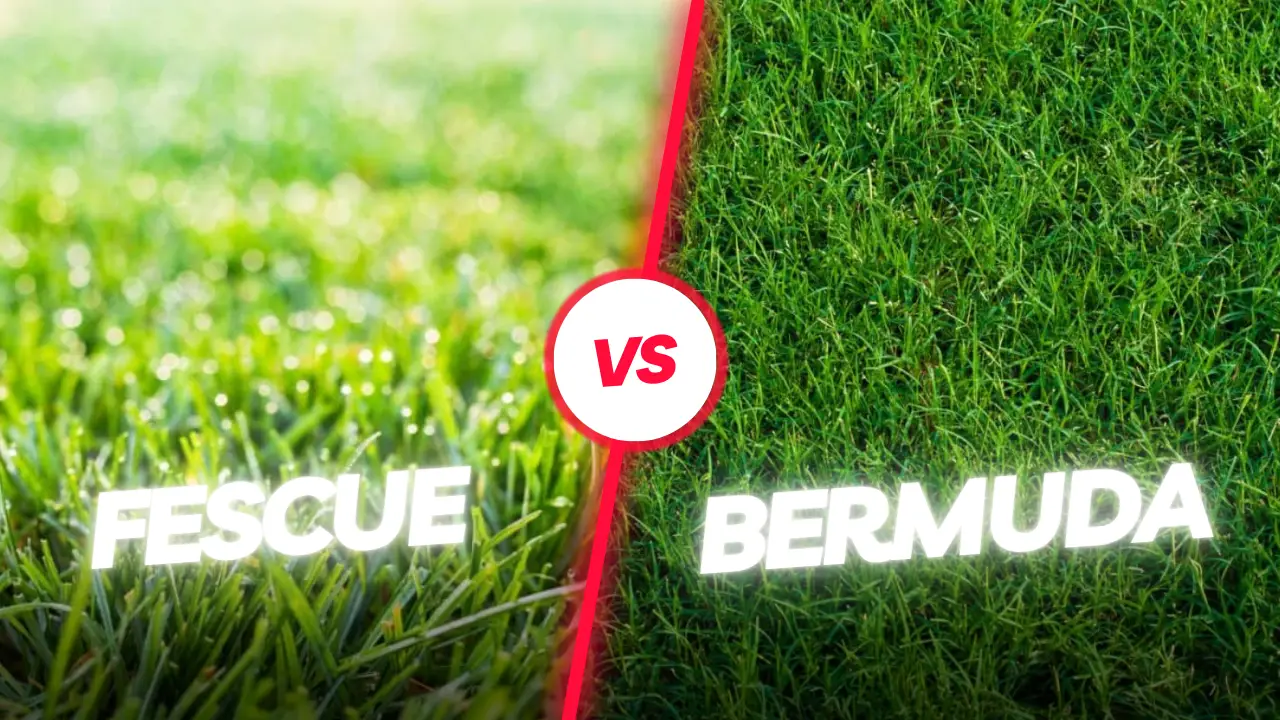Lush, green lawns are a source of pride for homeowners, and choosing the right type of grass is crucial for achieving that picturesque look. Two popular options often considered are Fescue and Bermuda grass. Both these grasses have their unique characteristics and benefits, making them suitable for different environments and preferences. In this article, we’ll delve into the specifics of Fescue and Bermuda grass, explore their differences, and help you make an informed decision for your lawn.
A well-maintained lawn enhances the curb appeal of any property, providing a refreshing and inviting outdoor space. Fescue and Bermuda grass are two widely grown species, each offering distinct advantages. Understanding their traits, growth patterns, and maintenance requirements is essential to determine which grass is best suited for your specific needs.
Understanding Fescue Grass
What is Fescue Grass?
Fescue grass, belonging to the Festuca genus, is a cool-season grass that thrives in moderate to cool climates. It is known for its adaptability, as it can tolerate both sun and shade, making it a versatile choice for various lawn types.
Types of Fescue Grass
There are several types of Fescue grass, including Tall Fescue, Fine Fescue, and Kentucky 31 Fescue. Each type has its own characteristics, such as leaf texture, growth habit, and tolerance to environmental conditions.
Characteristics of Fescue Grass
Fescue grass has fine, narrow blades and a rich green color. It forms dense clumps and creates a lush, carpet-like appearance when properly maintained. This grass has good drought tolerance, requiring less water compared to other species. It also performs well in shady areas, making it suitable for lawns with trees or buildings casting shadows.
Exploring Bermuda Grass
What is Bermuda Grass?
Bermuda grass, scientifically known as Cynodon dactylon, is a warm-season grass widely recognized for its durability and resilience. It flourishes in hot, sunny climates and is commonly found in the southern regions of the United States.
Types of Bermuda Grass
There are various types of Bermuda grass, including Common Bermuda, Hybrid Bermuda, and Celebration Bermuda. Each type exhibits specific traits and growth patterns, allowing homeowners to choose the most suitable option based on their requirements.
Characteristics of Bermuda Grass
Bermuda grass features fine-textured, medium to dark green blades. It spreads aggressively through stolons and rhizomes, forming a dense and tightly knit turf. This grass has exceptional wear and traffic tolerance, making it ideal for lawns that receive heavy foot traffic. Bermuda grass also exhibits excellent heat and drought resistance, enabling it to maintain its color and vigor during dry spells.
Differences Between Fescue and Bermuda Grass
When deciding between Fescue and Bermuda grass, several factors come into play. Let’s explore the key differences between these two grass types:
Climate and Region Suitability
Fescue grass thrives in cooler climates and is well-suited for regions with mild summers and winters. It performs best in the transition zone, where temperatures fluctuate between hot and cold. Bermuda grass, on the other hand, flourishes in warm, sunny climates and is commonly found in the southern states.
Appearance and Texture
Fescue grass has a fine texture with narrow blades, creating an elegant, manicured look. Bermuda grass, on the contrary, has a coarser texture and wider blades, providing a slightly rugged appearance.
Maintenance Requirements
Fescue grass requires regular watering, especially during dry periods, to maintain its lushness. It benefits from regular mowing, fertilization, and aeration. Bermuda grass has lower water requirements and can tolerate drought better, but it requires more frequent mowing and fertilization to keep it in prime condition.
Drought Tolerance and Water Needs
Fescue grass has good drought tolerance but needs supplemental watering during extended dry spells. Bermuda grass is highly drought-tolerant and can survive longer periods without irrigation. Its deep root system enables it to access water stored in the soil more effectively.
Shade Tolerance
Fescue grass is renowned for its shade tolerance, making it a suitable choice for lawns with significant shade cover. Bermuda grass, however, requires ample sunlight to thrive and struggles to maintain its vitality in shady areas.
Traffic and Wear Resistance
If your lawn experiences heavy foot traffic, Bermuda grass is the better option. Its robust growth and quick recovery rate make it resilient against wear and tear. Fescue grass, although durable, may show signs of stress under intense usage.
Disease and Pest Resistance
Fescue grass exhibits higher resistance to diseases and pests, making it a preferred choice for homeowners who want to minimize chemical treatments. Bermuda grass, while generally robust, is susceptible to certain diseases and pests, necessitating occasional preventive measures.
Overall Performance and Popularity
Fescue grass is known for its adaptability, versatility, and ability to thrive in various conditions. It is a popular choice for homeowners seeking a low-maintenance lawn. Bermuda grass, on the other hand, offers exceptional durability, heat tolerance, and rapid growth, making it favored for sports fields and high-traffic areas.
Choosing Between Fescue and Bermuda Grass
Selecting the ideal grass for your lawn depends on your location, climate, desired appearance, maintenance commitment, and usage patterns. Consider the specific characteristics of Fescue and Bermuda grass in relation to your requirements. Consult with local experts or turf specialists to get personalized recommendations based on your geographic area.
Conclusion
In the end, the decision between Fescue and Bermuda grass boils down to your specific needs and the environmental conditions of your region. Fescue grass offers adaptability, shade tolerance, and moderate maintenance requirements, while Bermuda grass excels in heat tolerance, wear resistance, and rapid recovery. Assess the climate, usage patterns, and aesthetic preferences of your lawn to make an informed choice. Remember to provide adequate care and maintenance to ensure your chosen grass thrives and transforms your yard into a stunning outdoor oasis.
Frequently Asked Questions (FAQs)
Is Fescue grass suitable for hot climates?
No, Fescue grass is best suited for cooler climates and performs poorly in hot regions with intense summer heat.
Can Bermuda grass grow in shaded areas?
Bermuda grass requires ample sunlight to thrive and struggles to maintain its vigor in shaded areas. It is not recommended for lawns with significant shade cover.
Which grass is more drought-tolerant, Fescue or Bermuda grass?
Bermuda grass is highly drought-tolerant and can survive longer periods without irrigation. While Fescue grass has good drought tolerance, it requires regular watering during dry spells.
Does Fescue grass need frequent mowing?
Fescue grass generally requires less frequent mowing compared to Bermuda grass. However, regular mowing is still necessary to maintain its appearance and overall health.
Can Bermuda grass withstand heavy foot traffic?
Yes, Bermuda grass is known for its exceptional wear and traffic tolerance. It can withstand heavy foot traffic and recover quickly from damage.








